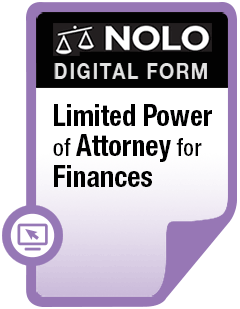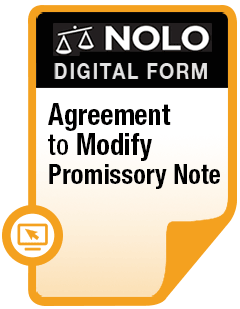The Telephone Consumer Protection Act (TCPA) regulates robocalls and prerecorded messages.
Congress passed the federal Telephone Consumer Protection Act (TCPA) (47 U.S.C. § 227) and its implementing regulations (47 C.F.R. § 64.1200) in response to increasing consumer complaints about telemarketer and debt collector phone calls. The primary purpose of the TCPA is to reduce the number of nuisance calls you get.
In addition, some states, like Arkansas, Florida, Oklahoma, and Washington, have passed their own mini-TCPA laws. These laws generally put additional restrictions on what telemarketers may and may not do when calling consumers in those states.
With this guide to the TCPA and state telemarketing laws, you can learn how to protect yourself from unwanted calls.
- What Is a Robocall?
- The TCPA: Your Weapon Against Robocalls and Unwanted Telemarketing
- Know Your Rights: Your Guide to Unwanted Calls
- U.S. Supreme Court Limits the Scope of the TCPA in Facebook v. Duguid
- Documenting Evidence of TCPA Violations
- How to Fight: Combating Telemarketing Harassment Under the TCPA
- Legal Updates for Robocalls
- State Mini-TCPA Laws
- Taking Action: Reporting Violations and Seeking Justice
- Talk to a Lawyer
What Is a Robocall?
An automated call, or "robocall," is a call dialed by a computer. On the other hand, a prerecorded voice message is a recorded human voice message that the caller uses when contacting a consumer. Calls made by artificial intelligence (AI) fall under the category of prerecorded voice messages under the TCPA.
Under the TCPA, those who want to make robocalls must get the called party's "prior express consent." (47 U.S.C. § 227(b)(1)(A),(B) (2025).) An FCC rule from 2012 says that "prior express consent" means "prior express written consent" when the robocall involves telemarketing or advertising. (47 C.F.R. § 64.1200(a)(2),(3) (2025); In the Matter of Rules and Reguls. Implementing the Tel. Consumer Prot. Act of 1991, 27 FCC Rcd. 1830, 1831 (2012).)
The TCPA: Your Weapon Against Robocalls and Unwanted Telemarketing
The TCPA specifically restricts the practices of telemarketers and debt collectors and their use of automated dialing and prerecorded voice messages concerning:
- cell phones
- residential phone lines
- text messages, and
- unsolicited faxes.
The TCPA also restricts telemarketers from calling consumers registered with the federal do-not-call registry.
Know Your Rights: Your Guide to Unwanted Calls
The TCPA prohibits the following practices.
Calls to Cell Phones
The TCPA prohibits marketers from sending automated calls, prerecorded messages, and text messages to cell phones. The law applies to all cell phones for business or personal use.
In essence, a telemarketer or debt collector violates the law whenever it makes an automated robocall, prerecorded message, or text message to a consumer's cell phone unless the consumer previously gave the telemarketer or debt collector permission to call. In cases where consent has been previously given, the consumer can revoke that consent by notifying the telemarketer or debt collector to stop calling the cell phone.
For telemarketing and advertising calls or texts made using an automated telephone dialing system (ATDS) or a prerecorded voice to cell phones, or by prerecorded voice to residential lines, prior express written consent is required. (47 C.F.R. § 64.1200(a)(1)-(2) (2025).) Non-telemarketing calls require prior express consent. (The rules regarding prior express written consent were issued by the FCC under the TCPA.)
Calls to Residential Phone Lines
The TCPA prohibits telemarketing calls to residential telephone lines using an artificial or prerecorded voice to deliver a message without the prior express written consent of the called party. (47 C.F.R. § 64.1200(a)(3) (2025).)
Telemarketing Calls to Consumers on the Do-Not-Call Registry
The TCPA prohibits any solicitation calls to those consumers whose telephone numbers are registered on the national do-not-call list. Consumers can place both their cell phone and residential lines on the do-not-call registry.
The prohibition only applies to solicitations from telemarketers/sellers with whom the consumer does not have an "established business relationship." If the consumer has done business with a telemarketer/seller within the last 18 months or made an inquiry within the last three months, then it is presumed under the TCPA that the consumer has an established business relationship with that telemarketer/seller. (47 C.F.R. § 64.1200 (2025).)
Under the TCPA, telemarketers and debt collectors using an autodialer are also forbidden from other practices, including calling the consumer before 8:00 a.m. or after 9:00 p.m. The caller must additionally, during any call, provide the caller's name, the name of the business entity on whose behalf the call is being made, and a telephone number or address at which the person or entity can be reached.
U.S. Supreme Court Limits the Scope of the TCPA in Facebook v. Duguid
Again, the TCPA prohibits using an automated telephone dialing system (ATDS) or an artificial or prerecorded voice to make any call (other than a call made for emergency purposes or made with the prior express consent of the called party) to "telephone number[s] assigned to a paging service [or] cellular telephone service." (47 U.S.C. § 227(b)(1)(A)(iii) (2025).) The U.S. Supreme Court clarified in the case of Facebook, Inc. v. Duguid that, under the TCPA, to be considered an autodialer, the autodialer must have the capacity either to store or to produce a telephone number using a random or sequential number generator.
In this case, Facebook sent Noah Duguid numerous automatic text messages without his consent. Duguid sued Facebook for violating the provision of the TCPA, which prohibits calls placed using an ATDS, or autodialer. The court, ruling in favor of Facebook, decided that because Facebook's notification system neither stores nor produces numbers "using a random or sequential number generator," it is not an autodialer.
Other defendants in TCPA class action cases are likely to use this precedent to argue that the technology used to send text messages doesn't constitute an autodialer and, thus, the TCPA doesn't apply.
Documenting Evidence of TCPA Violations
Consumers receiving calls violating the TCPA can take a few steps to document the violations.
- Obtain and save all phone records and highlight incoming calls from debt collectors and telemarketers.
- Make a written record of the calls you receive, specifically, the date, time of the call, caller's identity, and a summary of any conversations held with the caller.
- Save all voice messages.
- If you have revoked your consent to receive calls, keep a copy of the revocation.
How to Fight: Combating Telemarketing Harassment Under the TCPA
Consumers who receive telemarketing calls, prerecorded or automated calls to their cell phones or residential landlines that violate the TCPA may file a lawsuit against the telemarketer or debt collector for the violation.
A consumer can recover:
- up to $500 for each violation of the do not call registry
- up to $500 per violation, and
- up to $1,500 per violation if the consumer can show that the TCPA was violated knowingly and willfully.
Civil Forfeiture as a TCPA Penalty
On December 30, 2019, the Pallone-Thune Telephone Robocall Abuse Criminal Enforcement and Deterrence (TRACED) Act became law. This legislation cracks down on robocallers by expanding the authority of the FCC to impose civil penalties of up to $10,000 per call for intentional violations of federal robocall laws and increases the time period that the Commission can take action against those who intentionally violate federal law to four years.
This penalty is in addition to other penalties for TCPA violations ($500 per violation, $1,500 for each willful or knowing violation). Specifically, the law states that if done "with the intent to cause such violation . . ." TCPA violations will result in "an additional penalty not to exceed $10,000."
Statute of Limitations for TCPA Violations
The statute of limitations for TCPA cases is four years.
Legal Updates for Robocalls
In recent years, federal and state governments (see below) and courts have been taking actions to regulate robocalls. Here are some of the most recent developments.
FCC Makes Most AI-Generated Robocalls Illegal
After AI was used in early 2024 to create a robocall message mimicking the voice of President Joe Biden urging New Hampshire residents not to vote in the state's primary election, the Federal Communications Commission (FCC) made these calls illegal under the TCPA.
FCC Rule Requiring One-to-One Consent for Robocalls Stuck Down by Court
In late 2023, the FCC approved regulations saying that telemarketing robocalls are allowed only if the actual seller, not just a telemarketing company, gets written consent from the consumer. Telemarketing firms often buy consumer information and consent from lead generators, who sometimes mislead consumers into thinking they're consenting to a single company's telecommunications, but instead are agreeing to get unwanted calls and text messages from many different companies.
The FCC's rule required "one-to-one consent" for obtaining express written consent to solicit customers via phone call or text using an autodialer or prerecorded voice message. Basically, the rule required telemarketers to get consumer consent to receive robocalls and robotexts one seller/brand at a time instead of allowing a single consent to apply to multiple businesses or sellers.
However, on January 27, 2025, the Eleventh Circuit vacated the rule. It said the FCC exceeded its statutory authority by attempting to redefine 'prior express consent' to include additional restrictions.
U.S. Supreme Court Strikes Down TCPA Exception for Federal Debt Collection
When the TCPA became law in 1991, the law prohibited "any call (other than a call made for emergency purposes or made with the prior express consent of the called party) using any automatic telephone dialing system or an artificial or prerecorded voice" to "any telephone number assigned to a paging service, cellular telephone service, specialized mobile radio service, or other radio common carrier service, or any service for which the called party is charged for the call." (47 U.S.C. § 227(b)(1)(A)(iii) (2025).) Then, in 2015, Congress amended the law as part of that year's budget bill to include an exception for calls made to collect on government-owned debts.
On July 6, 2020, however, the U.S. Supreme Court struck down the exception for the collection of debts owed to the federal government. (Barr v. American Association of Political Consultants, No. 19–631 (July 6, 2020) (2020 WL 3633780)). So, automated calls to cell phones to collect debts owed to or guaranteed by the federal government, like student loans and mortgage debts, are now banned along with other robocalls.
State Mini-TCPA Laws
Oklahoma and Arkansas join other states, such as Florida and Washington, in placing major restrictions on telephonic sales calls. The laws were largely a reaction to Facebook v. Duguid and were passed to implement a new and expanded definition of autodialer. (Talk to an attorney to learn the laws in your state.)
Oklahoma Restrictions on Telemarketers
Oklahoma's Telephone Solicitation Act of 2022 (Okla. Stat. tit. 15, § 775C.1 and following (2025)) requires telemarketers to get written consent before contacting people using an autodialer. Under this law, almost any electronic dialing tool qualifies as an autodialer. So, it essentially closes the state to telemarketers that don't get express written consent from consumers unless the telemarketing company uses actual humans to select numbers and dial.
The law, which is similar to the federal TCPA, also bans misleading telemarketing tactics. Under Oklahoma law, telemarketers can't:
- intentionally block their name or number on caller ID
- use technology that deliberately displays a different caller identification number (called "spoofing"), or
- alter their voice on calls.
The Oklahoma Telephone Solicitation Act also restricts when telemarketers can call you and limits how often they can call. In addition, the law creates a private right of action. So, if you live in Oklahoma and get telemarketing calls that violate this law, you may file a lawsuit against the telemarketer.
Telemarketing and Robocall Laws in Arkansas
Arkansas law also protects people from telemarketing robocalls and scammers targeting unsuspecting or vulnerable citizens over the phone. Under state law, callers must provide accurate information about their identity and location. They also can't use deceptive or fraudulent tactics when trying to sell goods or services or get someone to donate to a charity.
The law, which in some ways is similar to the federal TCPA, also imposes strict criminal penalties for illegal call spoofing and creates an oversight process for telecommunications providers.
Taking Action: Reporting Violations and Seeking Justice
If a telemarketer violates federal or state requirements or restrictions on telemarketers, you can take one or more of the following actions.
File a Complaint With Your State Attorney General's Office
You can file a complaint online with your state Attorney General's office to report a violation. The attorney general may bring actions to enforce compliance with the state's telemarketing laws.
File a Lawsuit Against the Telemarketer
If a caller violates the law, you can ask a court for an injunction or recovery of damages. You can use Nolo's Telemarketing Phone Call Log to keep track of telemarketer violations.
Add Yourself to Telemarketing Do-Not-Call Lists
Do-not-call lists protect consumers from unwanted calls from telemarketers.
Add yourself to the national do-not-call list. The Federal Communications Commission and Federal Trade Commission maintain the national do-not-call list. The registry is nationwide and applies to all telemarketers, though certain organizations, such as non-profit organizations, are exempt. You can add your number to this database by visiting the Federal Trade Commission website.
Add yourself to your state's do-not-call list (if it has one). Some states have their own do-not-call list. When registering, you might have to provide your name, physical address, county, and email address.
Talk to a Lawyer
If you have further questions about the TCPA or want to learn more about filing a lawsuit against a telemarketer or debt collector for a violation of the TCPA, talk to a consumer protection lawyer. (TCPA actions are often class action suits.)
Talk to a Lawyer
Need a lawyer? Start here.
How it Works
- Briefly tell us about your case
- Provide your contact information
- Choose attorneys to contact you
- What Is a Robocall?
- The TCPA: Your Weapon Against Robocalls and Unwanted Telemarketing
- Know Your Rights: Your Guide to Unwanted Calls
- U.S. Supreme Court Limits the Scope of the TCPA in Facebook v. Duguid
- Documenting Evidence of TCPA Violations
- How to Fight: Combating Telemarketing Harassment Under the TCPA
- Legal Updates for Robocalls
- State Mini-TCPA Laws
- Taking Action: Reporting Violations and Seeking Justice
- Talk to a Lawyer
- Briefly tell us about your case
- Provide your contact information
- Choose attorneys to contact you



